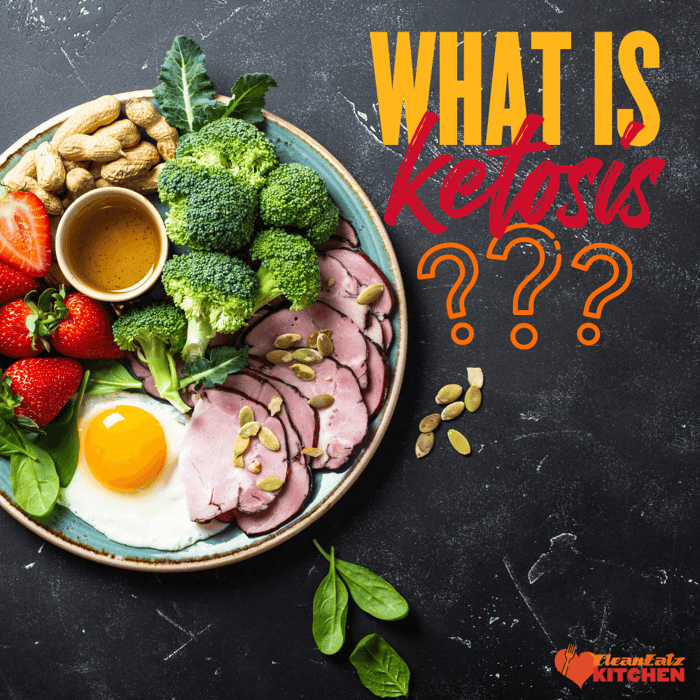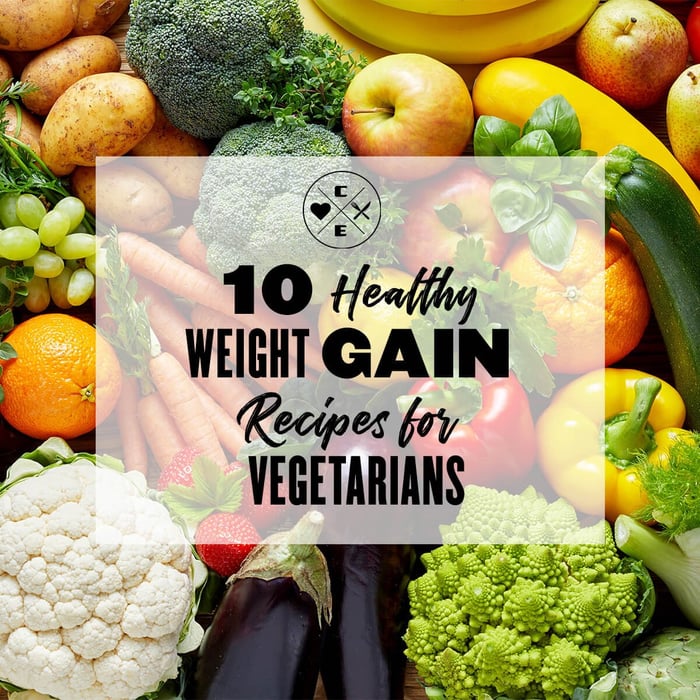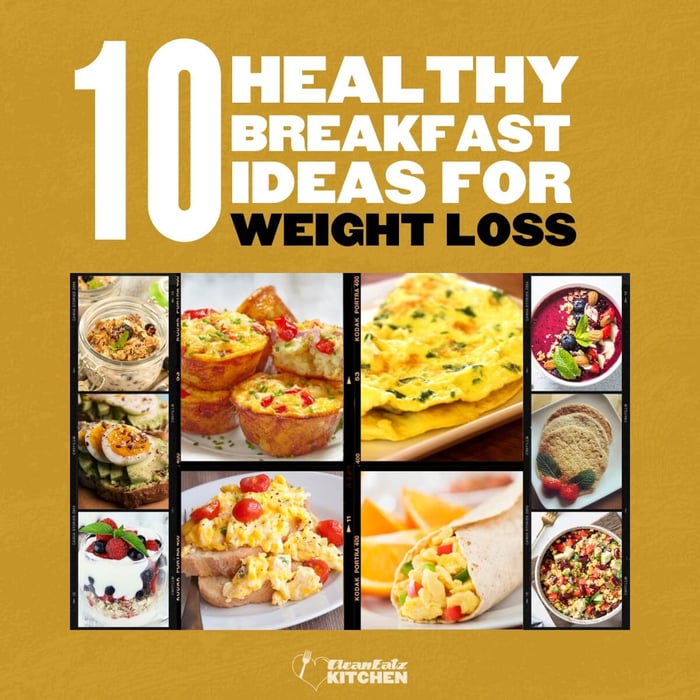What is a Keto Diet?

Jason Nista
Nutrition
|
Healthy Recipes
03/13/2023 9:55am
17 minute read
Table of Contents
- What Is a Keto Diet?
- What Is Ketosis?
- Does a Keto Diet Really Work?
- Can I Have Any Carbs On a Keto Diet?
- What Are The Best Foods To Eat On a Keto Diet?
- What Foods Should You Avoid On a Keto Diet?
- What Are The Benefits of a Keto Diet?
- Are There Any Risks to Following a Keto Diet?
- Top 10 Foods For Keto Diet Adherence
- Are You Ready To Try The Keto Diet?
- Final Thoughts
- FAQs
- FAQs
Unless you have been living under a rock, you probably know what is a keto diet. Keto meal delivery has become all the rage over the past few years and for a good reason. People are experiencing excellent results after following this diet. Their health is improving, their weight is decreasing, and their overall fitness levels are experiencing a significant boost.
If you want to learn more about how to start a keto diet meal plan and if it's right for you, keep reading, as we are going to tackle the following topics:
- Keto diet and ketosis
- What to eat on keto diet and what to avoid?
- Risks associated with the keto diet
What Is a Keto Diet?
A keto diet is a dietary approach that prioritizes high fat intake and low carbohydrate consumption. It involves eliminating most carbohydrates from your meal plans and incorporating healthy fats instead. Initially, the diet was developed by medical professionals to assist children with epilepsy in decreasing the frequency and severity of seizures.
Ordinarily, carbohydrates are the body's primary fuel source in a standard diet, as they contain glucose. However, when carbohydrate consumption is restricted, the body will seek out an alternate energy source, typically from stored fat. By utilizing both the fat consumed during meals and the body's fat reserves, the body generates the energy required to power through the day. This metabolic state prompts the body to produce a substance called ketones.
What Is Ketosis?
After knowing what is a keto diet, the next question to arise is what is ketosis? Ketosis refers to the metabolic state your body enters when it starts burning fat for fuel instead of sugars. As the fat is used, a byproduct called ketones builds up in your system. The main type of ketone found during this state is called beta-Hydroxybutyrate. This chemical is produced in the liver, which releases it to the rest of the body, where it is utilized as an alternative source of energy.
During the keto diet, the only way to tell if you are burning fat for fuel instead of glucose is by checking the ketone levels in your urine. Ketone test strips can be dipped in a small urine sample to determine the level of ketones your body is excreting. The higher the reading, the more ketones your body produces and, therefore, the more fat you are burning for fuel.
Does a Keto Diet Really Work?
It is important to incorporate a combination of keto and non-keto meals when following the keto diet. Following the keto diet exclusively for long periods of time can lead to physical symptoms such as hunger, fatigue, and nutritional deficiencies. However, your keto diet plan can be strategically designed to reduce or avoid these side effects. What can you eat on a keto diet? There are a variety of ways that people envision and follow the keto diet plan. For the most part, carbohydrate intake is restricted to very low levels. This includes foods such as pasta, rice, cereal, bread, potatoes, beans, and fruits. Generally, fat intake is very high, including meat, butter, high-fat milk and cheese, nuts, seeds, avocado, plant oils, and fish.
Let’s take a look at the keto-friendly meals below! You can build your own meal plan with these keto meals and more at our Keto Meal Delivery page.
To support lean muscle retention during your weight loss journey, it is important to incorporate adequate protein. This is what makes a high-protein diet great for weight loss, especially for individuals to gradually transition back to general eating patterns! These meals will boost protein intake to enhance lean muscle and promote reduced body fat with calorie-controlled portions. Check out some of my favorite high-protein meals below, which can be found on our website at our High Protein Meal Delivery page.
Can I Have Any Carbs On a Keto Diet?
Following the keto diet requires strict limitations on carbohydrate intake. When consuming any sources of sugar or high-carbohydrate foods, the body shifts from burning fats to using glucose for energy instead. To achieve and sustain a state of ketosis, it is necessary to keep carbohydrate intake below 50 grams per day, and some individuals may need to reduce their intake to less than 20 grams per day.
It's important to note that not all carbohydrates are created equal, and the type of carbs you consume also plays a crucial role in achieving ketosis. The keto diet emphasizes whole, nutrient-dense foods while limiting or eliminating processed and refined carbohydrates. For example, consuming 50 grams of carbohydrates from vegetables like spinach, kale, and broccoli will have a different effect on the body than consuming 50 grams of carbohydrates from refined sugar.
To put carbohydrate intake into perspective, two slices of white bread contain approximately 26 grams of carbs, which is already over half of the recommended daily intake for the keto diet. The fewer carbohydrates you consume, the easier it is to achieve and maintain a state of fat-burning ketosis.
However, it's essential to ensure that your diet remains balanced and nutritionally adequate while following the keto diet. Cutting carbohydrates to extremely low levels can lead to nutrient deficiencies, particularly in fiber, vitamins, and minerals. Therefore, it's crucial to incorporate a variety of nutrient-dense foods like leafy greens, low-carb vegetables, healthy fats, and moderate amounts of protein to ensure your body receives the nutrients it needs to function optimally.
Limiting carbohydrate intake is a vital aspect of the keto diet. While consuming some carbohydrates is necessary for optimal health, the type and amount of carbohydrates you consume play a significant role in achieving and maintaining ketosis. It's essential to balance carbohydrate restriction with a nutritionally balanced diet that provides adequate nutrients to support optimal health.
What Are The Best Foods To Eat On a Keto Diet?
When following the keto diet, it is essential to maintain a specific macronutrient ratio, which involves consuming high amounts of healthy fats, moderate amounts of protein, and minimal carbohydrates. Here are some suggestions for what to eat on keto diet:
High-fat foods: Include healthy sources of fat in your diet, such as nuts, seeds, avocados, olive oil, coconut oil, and fatty fish like salmon.
Moderate protein: Choose moderate amounts of protein from sources like poultry, beef, pork, eggs, and fatty fish. Avoid high-protein foods like legumes and grains.
Low-carb vegetables: Incorporate non-starchy vegetables such as leafy greens, broccoli, cauliflower, and zucchini.
Keto-friendly snacks: Snack on nuts, seeds, cheese, or low-carb vegetables with dip.
When planning meals on the keto diet, consider the following tips:
Meal planning: Plan out meals ahead of time to ensure you are getting enough healthy fats, moderate protein, and low-carb vegetables.
Meal preparation: Prepare meals in advance to save time and reduce the risk of consuming high-carbohydrate foods when in a rush.
Keto-friendly recipes: Search for keto-friendly recipes that incorporate healthy fats, moderate protein, and low-carb vegetables.
You will want to keep foods on hand that are high in protein and fat and limit the amount of sugary or carbohydrate-heavy foods in your diet.
Some of the best foods to stock in your fridge and pantry include:
- Poultry
- Beef
- Fatty fish (like salmon and mackerel)
- Whole eggs
- Cheese
- Butter
- Plain greek yogurt
- Nuts and seeds
- Avocados
- Oil (like olive, avocado, and coconut oil)
- Low-carb veggies (like salad greens, onions, peppers, and sprouts)
- Herbs, spices, salt, and pepper.
What Foods Should You Avoid On a Keto Diet?
While following the keto diet, it is essential to avoid certain foods to maintain ketosis and achieve optimal health benefits. Here are some foods to avoid:
High-carbohydrate foods: The keto diet requires limiting carbohydrate intake to approximately 20-50 grams per day. Therefore, avoid foods like bread, pasta, rice, potatoes, and sugary snacks and beverages.
Sugary foods: Foods containing added sugars, such as candy, soda, and other sweets, should be avoided, as they can quickly spike blood sugar levels.
Processed foods: Processed foods often contain hidden carbohydrates and unhealthy fats that can interfere with ketosis. Examples include processed meats like hot dogs and deli meats, as well as pre-packaged snacks and frozen meals.
Grains and legumes: Foods like beans, lentils, and grains like wheat, corn, and oats contain high levels of carbohydrates and should be avoided on the keto diet.
High-carb fruits: Some fruits, such as bananas, grapes, and oranges, are high in carbohydrates and should be avoided. Instead, opt for lower-carb options like berries, avocados, and tomatoes.
What Are The Benefits of a Keto Diet?
Numerous studies have been conducted on the keto diet and all of the benefits it can have on your body and overall health. One of the most common benefits of this way of eating is the amount of weight most people lose. A diet that is high in carbohydrates often results in significant weight gain. Training your body to function without excess carbs and using fat for fuel will allow the pounds to start dropping off. Filling up on healthy fats will also keep you satiated longer, curbing your appetite and reducing unhealthy snacking habits.
Along with weight loss, a keto diet has also been shown to:
- Reduce inflammation
- Lower cholesterol levels
- Control blood sugar levels
- Reduce the risk factors associated with diabetes
- Lower blood pressure
- Improve your heart health
- Decrease the incidence and severity of seizures
- Minimize the risk of neurological diseases like Alzheimer's and Parkinson
- Prevent migraines
- Reduce acne and improve the look and feel of your skin
Are There Any Risks to Following a Keto Diet?
Switching from a regular diet to a keto meal plan can be a big change for your body. If you are generally healthy, there are minimal risks to this lifestyle; however, you may experience some side effects, especially in the beginning. Also known as the keto flu, some people experience flu-like symptoms, including diarrhea and nausea. Other initial side effects include:
- Low energy levels
- Poor mental function
- Increased hunger
- Insomnia and sleeplessness
- Upset stomach and digestive issues
- Poor exercise performance
These symptoms are quite common and usually only last a short period of time. Many people find that slowly decreasing the number of carbs that they eat over the course of a few weeks will help minimize the discomfort they experience. This method gives the body time to adjust to these new dietary changes and teaches it how to better switch to fat for fuel.
While the ketogenic diet is usually a safe choice for most people, there are some serious long-term health issues that can occur. Fatty liver, low blood protein, kidney stones, and vitamin deficiencies have been reported. Because of this, visit your doctor regularly and talk to them about your eating habits to ensure this diet is safe for you.
Also, you may be wondering, "is the keto diet good for diabetics?" A particular medication taken for Type 2 diabetes may increase the risk of diabetic ketoacidosis, a serious and life-threatening condition. Anyone taking this medication or anyone who has diabetes should speak with their doctor before making any changes to their meal plan.
Top 10 Foods For Keto Diet Adherence
The keto diet, similar to other weight loss meal plan diets, has been around for decades and is one of the most popular diets. The keto diet derives its name from the fact that it's designed to put your body into a metabolic state known as ketosis. This state occurs when your body starts burning fat for energy instead of carbohydrates.
While there are many variations on a keto meal delivery plan, what to eat on the keto diet involves eating low-carb, high-fat foods and incorporating plenty of protein, like with a high protein meal delivery service. Here are the top foods to eat on a keto diet:
Avocado
Avocado is a good source of fat, fiber, potassium and vitamin E. Avocados can help you feel fuller longer while keeping your blood sugar stable. They’re also high in heart-healthy monounsaturated fatty acids.
While avocados are eaten as a snack or on salads, they make great additions to keto-friendly recipes like guacamole or homemade mayo.
Cheese
Cheese is a good source of protein and fat, with only minimal carbs. It's high in calories and saturated fat, but if you're following the keto diet, that what you’re looking for. Still, it's important to watch your intake if you have any sort of blood pressure or cholesterol issues.
Cheese is easy to add to many recipes so it's a good option for what to eat on the keto diet when you want something savory or creamy in your meal. But be careful because too much cheese can quickly make even a low-carb diet unhealthy.
Coffee, Tea, or Sparkling Water
When it comes to drinks while on keto, you are pretty limited. Aside from good ol’ H2O you can drink coffee, tea, or sparkling water.
It must be stressed that coffee doesn’t mean coffee with sugar or creamer and tea doesn’t mean sweet tea. Both drinks need to be sugar free. You can add some half and half to your coffee or tea if you don’t like it black.
Sparkling water is a good substitute for soda. There are many different flavors to enjoy and they are a great refreshing drink on a hot summer day.
Eggs
Eggs are a great source of high-quality protein and healthy fat. They're also packed with vitamins, minerals, and lecithin. This nutrient helps your body metabolize fats, cholesterol, and other nutrients in food. Plus, it helps you feel full for longer periods of time.
Eggs are also an excellent source of choline—a nutrient that plays an important role in brain function as well as liver health.
Fish and Seafood
Fish and seafood are a good source of protein, low in carbohydrates, and high in omega-3 fats. They're also high in selenium (which may help prevent heart disease), potassium (which helps lower blood pressure), vitamin D (which helps fight cancer), B12 (for healthy brain function), and iodine (to help with thyroid hormone production).
When you're on a diet, it can feel like you have to eat the same boring foods. But fish is actually a great option of what to eat on the keto diet because it's so versatile.
You can cook it in many different ways and make some really delicious meals with just one type of fish.
For example, if you're looking for something quick and easy then try making pan-seared salmon with pesto sauce, broil it in the oven with sliced lemons, or just sprinkle some seasonings on it and cook it in the microwave.
Low-Carb Vegetables
Vegetables are low-carb, but they're not all created equal. To avoid carbs (and fill up on vitamins and minerals instead), you'll want to stick with these lists of low-carb vegetables:
- Asparagus
- Broccoli
- Brussels sprouts
- Cabbage
- Cauliflower
- Celery
- Cucumber (the large kind)
- Eggplant (the long Asian variety)
- Green beans
- Kale
- Lettuce
- Mushrooms
- Onions (sweet onions like Vidalia or Walla Walla have fewer carbs than regular white or yellow onions)
- Peppers (red bell peppers have fewer carbs than green bell peppers)
- Spinach
Meat and Poultry
Meat and poultry are key on the keto diet. You'll probably be eating more than you're used to, so it's important to choose leaner cuts that are higher in fat and lower in carbs.
The following meats and poultry are good options for what to eat on keto diet:
- Beef (lean cuts)
- Chicken (skinless breasts or thighs)
- Turkey (white meat only; remove skin before cooking)
Nuts and Seeds
Nuts and seeds are a great source of healthy fats, which provide energy, keep you full and balanced. They're also a good source of protein, fiber and vitamins and minerals.
- Almonds
- Walnuts
- Pistachios
- Pecans
- Brazil nuts
Oils and Fats
Oils and fats are an important part of a healthy keto diet. This is because they provide essential fatty acids that your body cannot produce on its own, as well as energy from their high fat content. Here's a list of some of the most popular oils and fats you can use in your cooking:
- Coconut oil
- Olive oil
- Ghee (clarified butter)
- Butter
- Avocado oil
- Flaxseed oil
- Macadamia nut oil
Are You Ready To Try The Keto Diet?
If you are considering starting a keto diet, it's important that you begin your journey armed with all the information you need. Start by slowly implementing healthy changes in your meal plan and gradually decrease the number of carbohydrates you consume. This will help ease you into the world of keto and reduce the symptoms of the keto flu. Another easy way to embrace the keto way of life is by enlisting the help of a meal prep delivery company like Clean Eatz Kitchen.
At Clean Eatz Kitchen, all of your meals are planned out ahead of time, prepared for you, and delivered right to your door. This takes all of the hassles out of planning and preparing your food and allows you to eat healthy all the time. Their meals are created using the freshest and most wholesome ingredients, and they are catered to your specific dietary requirements. Whether you want gluten-free meals delivered, on a high-protein diet, or want to give our premade low-carb keto meal delivery plan a try, Clean Eatz Kitchen can help. Visit our website for more information on all of our services and build your meal plans today!
Final Thoughts
In conclusion, what is a keto diet? The keto diet offers promising results in weight loss and overall health improvement. Prioritizing high fat intake and limiting carbohydrates can lead to ketosis, where the body burns fat for fuel. While it has numerous benefits, it's essential to be mindful of potential side effects during the adaptation phase. Consulting with a healthcare professional and adopting a balanced approach is crucial. Consider meal prep services for convenience. Prioritize nutrient-dense foods and tailor the diet to individual health needs for optimal results.
FAQs
What foods do you eat on the keto diet?
The keto diet emphasizes high-fat, low-carbohydrate foods. Some examples of foods that can be eaten on the keto diet include meats, fish, eggs, healthy fats such as olive oil and avocados, non-starchy vegetables, nuts and seeds, and dairy products.
What are the main rules of keto?
The main rules of the keto diet include keeping carbohydrate intake low, consuming moderate amounts of protein, and consuming high amounts of healthy fats. The macronutrient ratios for the keto diet typically involve getting around 70-80% of calories from fat, 20-25% of calories from protein, and 5-10% of calories from carbohydrates. It's also important to choose nutrient-dense, whole foods while avoiding processed and refined carbohydrates.
Are keto diets healthy?
The keto diet has been shown to have benefits for weight loss, reducing inflammation, improving insulin sensitivity, and potentially even benefiting certain medical conditions such as epilepsy and type 2 diabetes. However, as with any dietary approach, it's important to ensure that the diet is nutritionally balanced and sustainable in the long term. In some cases, following a keto diet may lead to nutrient deficiencies or other health concerns, so it's important to speak with a healthcare professional before starting a new diet.
What are the benefits of a keto diet?
The benefits of a keto diet include weight loss, improved insulin sensitivity, reduced inflammation, potential benefits for certain medical conditions such as epilepsy and type 2 diabetes, and increased satiety and feelings of fullness. Some people also report improved energy levels and mental clarity while following a keto diet. However, as with any dietary approach, individual results may vary, and it's important to consider the potential drawbacks and risks associated with any dietary change.
Related Articles
10 Healthy Weight Gain Recipes for Vegetarians
26 minute read
7 High-Calorie Breakfast for Weight Gain Ideas
4 minute read



